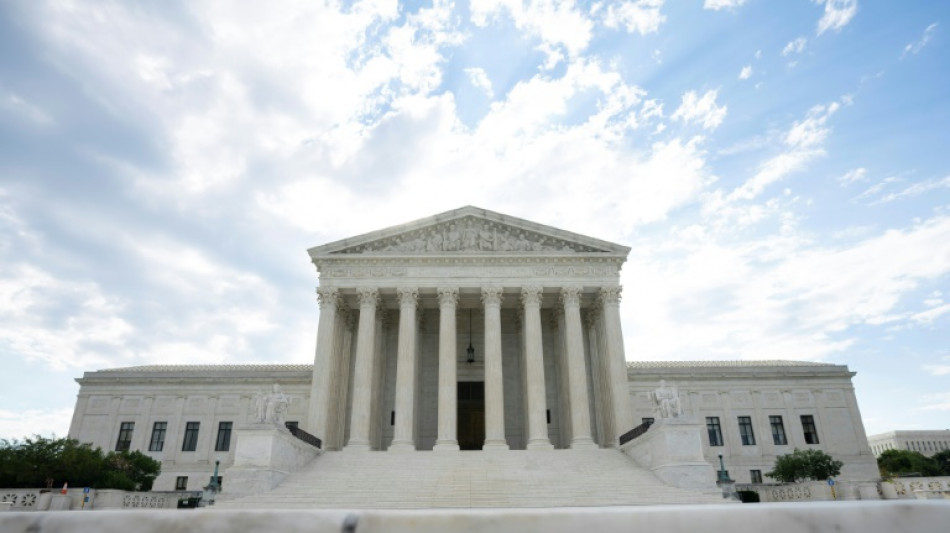
-
 Surging tourism is polluting Antarctica, scientists warn
Surging tourism is polluting Antarctica, scientists warn
-
Ten Hag hoping for fresh start at rebuilding Leverkusen
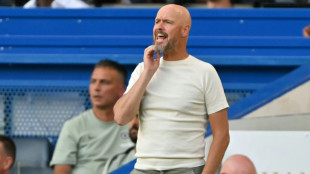
-
 Five players to watch at the Women's Rugby World Cup
Five players to watch at the Women's Rugby World Cup
-
Suarez fills Messi void as Inter Miami beat Tigres 2-1

-
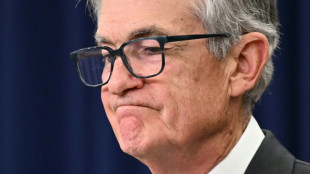 Asian markets creep up as investors await key speech
Asian markets creep up as investors await key speech
-
New Zealand spy service warns of China interference
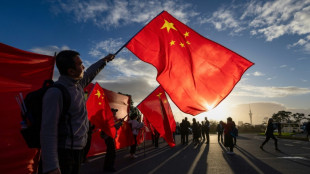
-
 Brazil police accuse Bolsonaro and son of obstructing coup trial
Brazil police accuse Bolsonaro and son of obstructing coup trial
-
Israel approves major West Bank settlement project

-
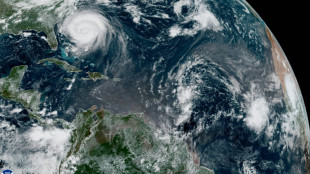 North Carolina braces for flooding from Hurricane Erin
North Carolina braces for flooding from Hurricane Erin
-
Pensioners on the frontline of Argentina's fiery politics
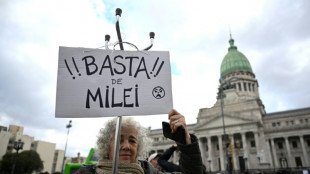
-
 'Curly is beautiful': Tunisian women embrace natural hair
'Curly is beautiful': Tunisian women embrace natural hair
-
Sudanese lay first bricks to rebuild war-torn Khartoum

-
 Newcastle host Liverpool amid Isak stand-off, Spurs test new-look Man City
Newcastle host Liverpool amid Isak stand-off, Spurs test new-look Man City
-
Texas Republicans advance map that reignited US redistricting wars
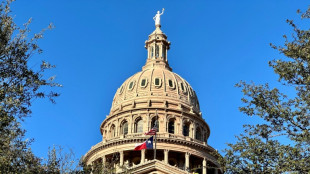
-
 South Africa spinner Subrayen cited for suspect action
South Africa spinner Subrayen cited for suspect action
-
Meme-lord Newsom riles Republicans with Trump-trolling posts
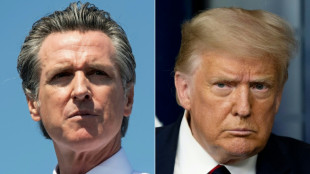
-
 Messi ruled out of Miami's Leagues Cup quarter-final v Tigres
Messi ruled out of Miami's Leagues Cup quarter-final v Tigres
-
Trump raises pressure on Fed with call for governor to resign
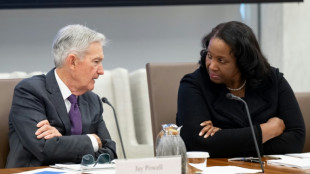
-
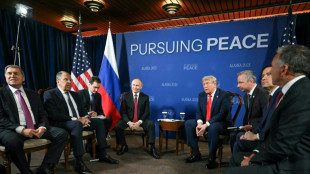 Trump flirts with Ukraine security, with narrow margins
Trump flirts with Ukraine security, with narrow margins
-
US sends three warships near Venezuela coast

-
 Celtic held by Kairat Almaty in Champions League play-off
Celtic held by Kairat Almaty in Champions League play-off
-
North Carolina braces for flooding from 'Enormous' Erin
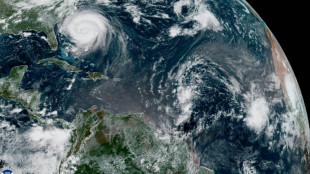
-
 Arsenal could hijack Spurs' bid for Palace star Eze - reports
Arsenal could hijack Spurs' bid for Palace star Eze - reports
-
Namibian Shalulile equals South African scoring record

-
 PlayStation prices rise as US tariffs bite
PlayStation prices rise as US tariffs bite
-
Games publisher kepler on cloud nine after smash hits

-
 Thirteen arrested over murders of Mexico City officials
Thirteen arrested over murders of Mexico City officials
-
Seville storms past Lyles for Lausanne 100m win

-
 India test-fires nuclear-capable ballistic missile
India test-fires nuclear-capable ballistic missile
-
Google unveils latest Pixel phones packed with AI

-
 Brazil records 65 percent drop in Amazon area burned by fire
Brazil records 65 percent drop in Amazon area burned by fire
-
Threat from massive western Canada wildfire eases

-
 England women's rugby coach Mitchell says World Cup favourites' tag 'irrelevant'
England women's rugby coach Mitchell says World Cup favourites' tag 'irrelevant'
-
US ramps up attack on international court over Israel

-
 Palace transfer targets Eze and Guehi to start in European tie
Palace transfer targets Eze and Guehi to start in European tie
-
North Carolina coasts prepare for flooding as Erin churns offshore

-
 India test-fires ballistic missile ahead of US tariff hike
India test-fires ballistic missile ahead of US tariff hike
-
Antarctic climate shifts threaten 'catastrophic' impacts globally

-
 Tall ships sail into Amsterdam for giant maritime festival
Tall ships sail into Amsterdam for giant maritime festival
-
Trump raises pressure on central bank, calls for Fed governor to resign

-
 Woods to head PGA Tour committee to overhaul golf
Woods to head PGA Tour committee to overhaul golf
-
Google packs new Pixel phones with AI

-
 How Europe tried to speak Trump
How Europe tried to speak Trump
-
Stock markets diverge awaiting Fed signals as tech sell-off deepens

-
 Ombudsman gives Gosden another International, Derby hero Lambourn loses
Ombudsman gives Gosden another International, Derby hero Lambourn loses
-
Eurovision returns to Vienna, 11 years after Conchita Wurst triumph

-
 England expects at Women's Rugby World Cup as hosts name strong side for opener
England expects at Women's Rugby World Cup as hosts name strong side for opener
-
Marseille's Rabiot, Rowe up for sale after 'extremely violent' bust-up: club president

-
 Shearer accuses Isak of pouring 'flames on fire' of Newcastle row
Shearer accuses Isak of pouring 'flames on fire' of Newcastle row
-
French champagne harvest begins with 'promising' outlook


US Supreme Court curtails power of individual judges to block Trump
A divided US Supreme Court handed President Donald Trump a major victory on Friday by curbing the power of lone federal judges to block executive actions.
In a 6-3 ruling stemming from Trump's bid to end birthright citizenship, the court said nationwide injunctions issued by district court judges "likely exceed the equitable authority that Congress has granted to federal courts."
The top court did not rule on the constitutionality of Trump's executive order seeking to end automatic citizenship for children born on American soil.
But the broader decision on the scope of judicial rulings removes a big roadblock to Trump's often highly controversial policy agenda and has far-reaching ramifications for the ability of the judiciary to rein in Trump or future American presidents.
Trump celebrated by telling reporters he had "a whole list" of policies he could now proceed on without opposition in the courts.
Trump's executive order on birthright citizenship is just one of a number of his moves that have been blocked by judges around the country -- both Democratic and Republican appointees – since he took office in January.
Courts have, for example, blocked or slowed down his hardline immigration crackdown, firing of federal employees, efforts to end diversity programs and punitive actions against law firms and universities.
Past presidents have also complained about national injunctions shackling their agenda, but such orders have sharply risen under Trump, who saw more in his first two months than Democrat Joe Biden did during his first three years in office.
Justice Amy Coney Barrett, a Trump appointee who authored the majority opinion joined by the other five conservative justices, said "the universal injunction was conspicuously nonexistent for most of our Nation's history."
"Federal courts do not exercise general oversight of the Executive Branch," Barrett wrote.
"When a court concludes that the Executive Branch has acted unlawfully, the answer is not for the court to exceed its power, too," she said.
The three liberal justices dissented with Justice Sonia Sotomayor saying "no right is safe in the new legal regime the Court creates."
"The Court's decision is nothing less than an open invitation for the Government to bypass the Constitution," Sotomayor said.
"The Executive Branch can now enforce policies that flout settled law and violate countless individuals' constitutional rights, and the federal courts will be hamstrung to stop its actions fully," she said.
- 'GIANT WIN' -
Trump, in a post on Truth Social, welcomed the ruling as a "GIANT WIN."
The case was ostensibly about Trump's executive order ending birthright citizenship, which was deemed unconstitutional by courts in Maryland, Massachusetts and Washington state.
But it actually focused on whether a single federal district court judge has the right to issue a nationwide block to a presidential decree with a universal injunction.
The issue has become a rallying cry for Trump and his Republican allies, who accuse the judiciary of impeding his agenda against the will of voters.
Steven Schwinn, a law professor at the University of Illinois Chicago, said the court's ruling "sharply undermines the power of federal courts to rein-in lawless actions by the government."
"The ruling will likely create a patchwork of birthright citizenship rights," Schwinn told AFP, where it is recognized in some locations for people who have successfully sued and not recognized for people who have not sued.
"This patchwork approach to individual rights is inconsistent with our history and tradition of federal rights in the United States and is inconsistent with the rule of law," he said.
The Trump administration had asked the Supreme Court to restrict the application of a district court's injunction solely to the parties who brought the case and the district where the judge presides.
Trump's executive order on birthright citizenship decrees that children born to parents in the United States illegally or on temporary visas would not automatically become citizens.
The three lower courts ruled that to be a violation of the 14th Amendment, which states: "All persons born or naturalized in the United States, and subject to the jurisdiction thereof, are citizens of the United States."
W.Mansour--SF-PST
